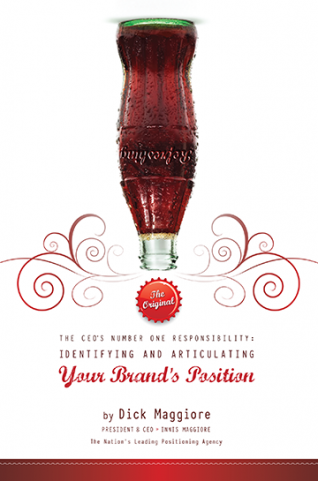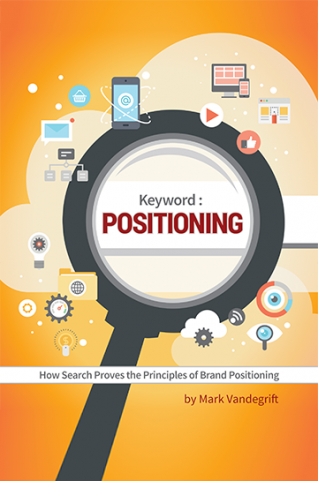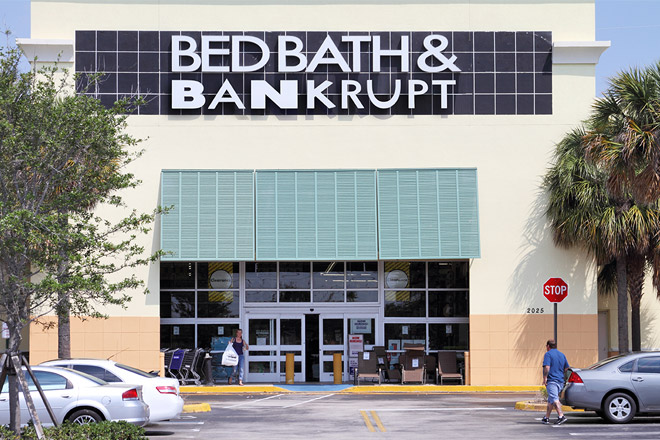The other evening, my wife and I were discussing the recent bad news about Bed Bath & Beyond. Bemoaning the fact that this time it probably is the end (bankruptcy usually is), she ran to the store to get the last of a few products she typically buys there. “I used to go to Bed Bath & Beyond and find 50 bathmats I could buy,” she said. “But then 50 became 20 and by the end, I was lucky to find five.” As I pondered her comment, it provided a keen insight on positioning a business and how this focused specialist flourished … then floundered.
The Good
One of the most successful ways to position a business is to be a focused specialist. Bed Bath & Beyond was highly successful because it bucked the trend of the ’70s to become all things to all people and go the way of the generalist.
Its name, which resulted from work by a local Cleveland agency (little known fact – email me if you want the whole story), claimed a hole in the marketplace that no one else owned. Around the same time, you may remember similar moves in the marketplace such as Toys”R”Us or Babies”R”Us. There was no question when you walked into those stores what they intended to sell you. The only better name Bed Bath & Beyond could have had was Bed Bath & Kitchen, but then that would break the alliteration.
Unfortunately, the “& Beyond” is what doomed BBB, but we’ll save that for the “Ugly” section below.
Our team at Innis Maggiore likes when we have a client with a specialist position in business. We even have a mantra, “the specialist always wins.” Why? Because in an age of distrust and cynicism, a specialist immediately gains a trust position the generalist cannot. There are a few reasons for this:
- The obvious is, we know what we’ll find when we enter the store (or the website). There’s no mystery when you shop from a specialist.
- Another is the assumption of expertise. If you’re a specialist, you are given an assumption by your customer that you know your product, service, or industry better than the competition.
- Finally, a specialist should have the broadest product offering and the deepest product knowledge within the tightest category. For BBB, that meant the most products in the Bed category and the Bath category. The understanding of “Beyond” mostly became synonymous with the Kitchen category. Three core competencies that were tightly associated.
A focused specialist position in business is seen most in local shops. When we think “boutique,” we assign a position of specialist. That boutique will thrive if it sticks to a tight product offering and fail once it tries to be all things to all people, which was the undoing of BBB.
The Bad
BBB had 1,500 stores as recently as 2018. As of this writing, there are 360 that will be shuttered soon. In its heyday, the company also owned World Market and other retail and online businesses. Unfortunately, Wall Street wasn’t happy with its success. When investors demand growth for growth’s sake, bad things happen. Typically, it means they want you to grow into other markets or grow your customer base. Why is that bad for a specialist? It means moving into a customer segment that doesn’t care about your specialty, so now you must become more things to more people.
An easy analogy for this is the toothpaste aisle. If you have sensitive teeth, chances are you will buy Sensodyne. But there is only a segment of the population that has sensitive teeth, and those who don’t probably care less about Sensodyne. If Sensodyne moved from its position and tried to win against the other toothpaste positions (e.g., whitening, fresh breath, organic/natural, etc.), its claim as the sensitive toothpaste would erode. We have a long list of such examples such as FedEx (formerly known for overnight delivery), Volvo (formerly known for safety), or Southwest Airlines (formerly known for low-cost airfare). The list goes on, but back to Bed Bath & Beyond.
& The Ugly
In a recent article by NPR, the author provided some key quotes from one of BBB’s past marketing executives. It provides all the insight we need to see the eventual destination (bankruptcy) of this retail specialist. From the article:
"I would go into one meeting, and it would be 'we need to be ... the destination for home, more upscale, home decor, more furniture,'" Amy Laskin, a former Bed Bath & Beyond content marketing executive, told NPR. "The next conversation would be 'we need to be more competitive with Amazon. We need to be the destination with everything,'" she recalled. "The next thing you know, we were carrying diamond jewelry like Costco does."
The misstep is obvious: “We need to be the destination with everything.” When the specialist tries to become the generalist, you can kiss your competitive difference good-bye.
You can point to the company’s mismanagement of stock buybacks and offerings, or to the poor user experience of their website, but this one statement from Laskin says it all. It’s the fait accompli.
Like Toys”R”Us and Babies”R”Us, we’ll simply remember Bed Bath & Beyond in the ash heap of formerly great brands that lost their focus. A name can only take you so far. Positioning is a business strategy and when the business separates itself from its reason for being, ugly things usually happen.
Positioning in business means staying focused
If you lack focus or feel focus is a bit fuzzy in your business, reach out to us. Our Appreciative Discovery® process has impacted more than 400 businesses around the world, and our positioning experts have seen every level of focus – or lack thereof. We can be that outside voice that calls you back to your reason for existence (unfortunately, it’s too late for BBB … don’t be BBB). Give us a call or contact us to learn more about how we can help you with positioning your business.



